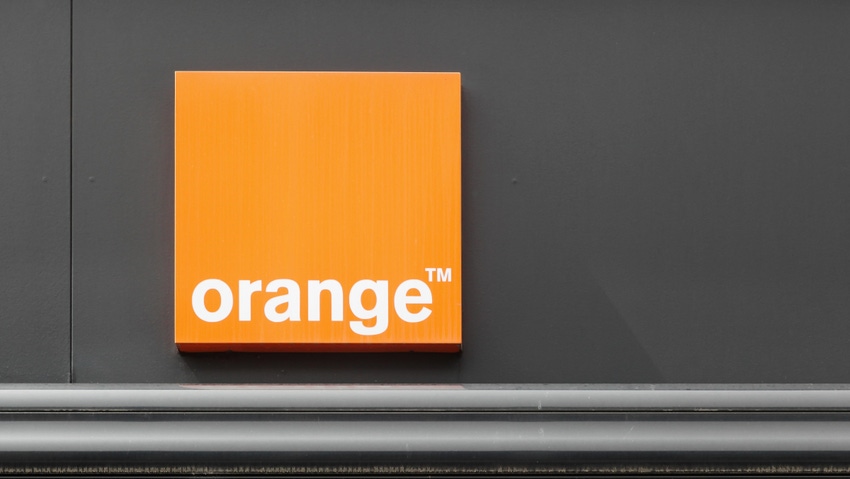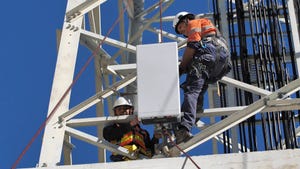Despite political unrest, MEA remains engine of Orange's growth
Orange Group reported a 12.2% increase in revenue from Africa and the Middle East in Q3 2023.

Orange has for some years now relied on its businesses in Africa and the Middle East to add glitter to otherwise lukewarm results figures. In the third quarter (Q3) of 2023, for example, the group reported a 12.2% increase in revenue from the region, compared with a slight decline in its home market of France and unchanged revenue for the rest of Europe.
This year has nevertheless also been marked by considerable political upheaval and civil unrest in some of the 15 African countries where Orange is present. Indeed, Verisk Maplecroft said 36 African countries saw an uptick in risk on its Civil Unrest Index between 2022-Q2 and 2023-Q2, "the largest annual increase seen in the region since the dataset launched in 2017."
In the Middle East, where the Israel-Hamas war continues to rage, Orange is present in Jordan, while the regional group is rounded out by Madagascar and Mauritius in the Indian ocean.
During the group's earnings call on Wednesday, Orange executives acknowledged the potential risks to its businesses from the multiple conflicts in the region, although group CEO Christel Heydemann noted that this is not the first time it has experienced crises here.
"Unfortunately, we know how to manage these crises. We are focused obviously on the security of our employees. And we have built a very resilient business balanced with the overall 18 countries in the region, with no countries representing more than 15% of our total revenues," she said.
Orange has also shown it will exit a market when necessary. For example, it sold its entire stake in Orange Niger to Zamani Com in November 2019.
Jérôme Hénique, executive vice president and CEO of Orange Middle East and Africa, hailed the group's resilience and growth in the MEA region over the past 25 years, "with an acceleration during the past five years." He noted that even operators in particularly difficult political environments, such as Mali or Burkina Faso, are achieving double-digit growth.
Hénique partly attributed this durability to Orange's practice of hiring local management and using local partners and subsidiaries. Like Heydemann, he also emphasized the need to maintain a balanced portfolio in the region, while retaining the necessary agility to exit "when a situation begins to be too tough, as we did in Niger in 2019."
Still some tasks ahead
In Q3 2023, Orange reported total group revenue of €10.99 billion (US$11.66 billion), up 1.8% on a comparable basis. Earnings before interest, tax, depreciation and amortization after leases (EBITDAaL) grew 1.4% to €3.6 billion ($3.8 billion).
Heydemann said the group is able to confirm its objectives for 2023 and is on track to achieve its ambitions for 2025, as laid out in the "Lead the Future" strategic plan unveiled earlier this year.
A number of projects remain a work in progress. For example, the proposed merger between Orange Spain and Masmovil is still awaiting clearance from the European Commission, which stopped the clock in its in-depth probe in July in order to give the two parties more time to provide the necessary information.
Merger remedies will likely be required, and Romania-based Digi Communications has already expressed interest in buying assets that could be put up for sale. Orange said it is confident the Commission will approve the transaction towards the end of 2023, "which would allow for it to be finalized in the first quarter of 2024."
Orange Business is also in the throes of a reorganization, with the objective of achieving a rebound in EBITDAaL by no later than 2025, cutting its product portfolio in half by Q1 2024, and reducing staff numbers.
According to the enterprise division's CEO Aliette Mousnier-Lompré, the group is "driving quite a profound transformation at Orange Business" and it will take two years to return to growth.
Notably, Enovacom, the healthcare subsidiary of Orange Business, recently acquired NEHS Digital and Xperis from Mutuelle Nationale des Hospitaliers (MNH) group. Heydemann indicated that while the focus remains on transforming Orange Business, it could be open to other targeted opportunities, particularly in the cybersecurity field.
Read more about:
EuropeAbout the Author(s)
You May Also Like












